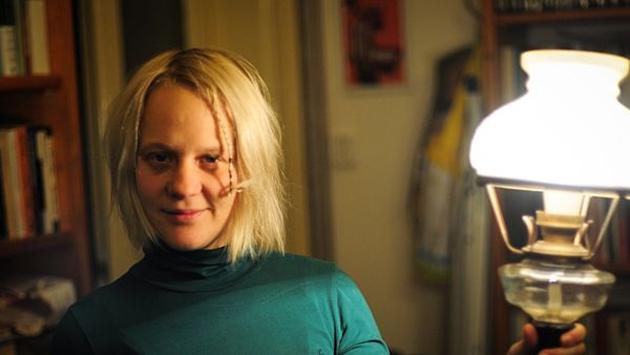You can tell a public discussion in the Czech Republic is about Romani people by one particular feature: There are always more "experts" sitting in the hall than on the panel, and they unfortunately never have enough of an opportunity to speak. All of their time is usurped by the "pseudo-humanists" who are invited to address them.
Every time I let someone talk me into going somewhere to share my wisdom about the state of the family, the left wing, the media, the Roma, women, or any combination of these topics, I always end up leaving the experience swearing I will never do it again. I probably don’t have what it takes to say what is essential in a sufficiently abbreviated way.
Last Saturday I was sitting on a panel in Brno for a symposium called "Dialogue in the Center of Europe" on the topic of "People on the Margins". The symposium was organized by the Bernard Bolzano Society and the Munich-based Ackermann-Gemeinde.
In this case, those "on the margins" meant Romani people in particular, and in addition to myself, the moderator, and a municipal-level CSU politician from Germany, the panel included Romani activist Ivanka Čonková of the Czech Republic, Herbert Heuß, an academic co-worker with the Central Council of German Sinti and Roma who is knowledgeable about the situation of Romani people throughout southeastern Europe, and Hungarian sociologist Éva Kovács, who also studies Roma. As is customary on such occasions, there was not enough time for us all to discuss this immeasurably complex and complicated topic.
There was even less time for the discussion with the audience, who were impatiently waiting their turn. After the other panelists briefly described the problems Romani people encounter in eastern Europe, the German municipal politician Martin Neumayer said he was surprised to hear things were so terrible – it almost seemed he had the feeling we were exaggerating.
Then the discussion with the audience erupted. A feeling of nervousness had been growing in the packed hall during our speeches.
This is not unusual here. After all, those in the audience "know" that panels almost always feature visionaries who are divorced from reality and don’t know what they are talking about, which can be recognized rather easily by the fact that they firmly refuse to acknowledge to the audience that "gypsies" are terrible.
The audience, naturally, wants to correct the record. Every single person wants to tell his or her own little story about "gypsies", and those who don’t have their own stories repeat the ones they have heard from their acquaintances or their relatives.
I understand this rather well – I have my own little stories that I feel beautifully illustrate the topic under discussion. Naturally I am also terribly irked when no one gets them.
On Saturday we learned, among other things, that Romani people draw large amounts of welfare and therefore do not have to work, and that the "gypsies" were "decent" people before, but that the Roma today are just well-fed mafiosi with gold chains around their necks standing on street corners. Martin Neumeyer was taken aback once more and was probably very soon rid of his feeling that the rest of us on the panel had been exaggerating what the Roma are up against here.
Romani studies scholar Lukáš Houdek joined the discussion and attempted to explain the concepts of "Gypsy" and "Rom", as he has recently written about that issue in particular. I just watched what was happening – there was not enough time to make a proper argument, and many people remained unheard when the discussion ended.
During the break, several participants did their best to explain to Romani activist Ivanka Čonková that she should do something about the fact that "gypsies" steal and put her own house in order. The symposium continued after lunch, and maybe they ultimately solved the problem, who knows, but I was already headed for the train.
Now for my own anecdote, for which I have a reliable witness! I was waiting with my youngest son, Slávek, in front of the train station for my mother, who was bringing me the coat I had left behind.
Slávek was doing his best, with his still-uncertain little steps, to balance on the curb, and two Romani women who were passing by were afraid he was going to jump into the road. We began a conversation.
Our chat was interrupted by two police officers who asked both of my interlocutors to show their identification. As usual, I just stared at them and kept my mouth shut.
I’m really good at staring, but not much else. I compensate for that by later imagining perfect replicas of my experiences, ones in which everything is extremely funny and every situation resolves itself.
My mother ran up with my coat and asked what was going on. I explained the situation to her and one of the two women added: "They’re asking for our identification because we’re gypsies".
The police officer replied: "Are you gypsies or Roma? You have to choose, you can’t be one today and the other next time around."
My mother does not usually keep her mouth shut. She told him: "The lady didn’t say she wants you to call her a gypsy, she was saying you consider her to be one and that’s why you’re asking for her identification, and if you’d been listening you’d have gotten the message."
I had to leave the little group to their fate because my train arrived, but I looked back from the staircase and overheard the two women telling my mother what a beautiful grandchild she has. The gratitude in their eyes because she stood up for them will stay with me for a long time.
First published on DeníkReferendum.cz.
